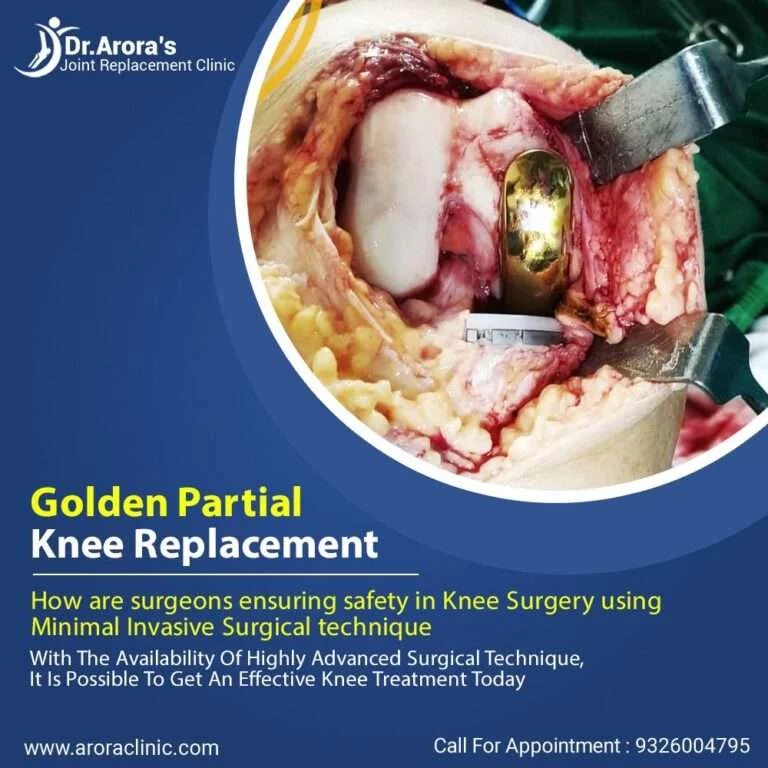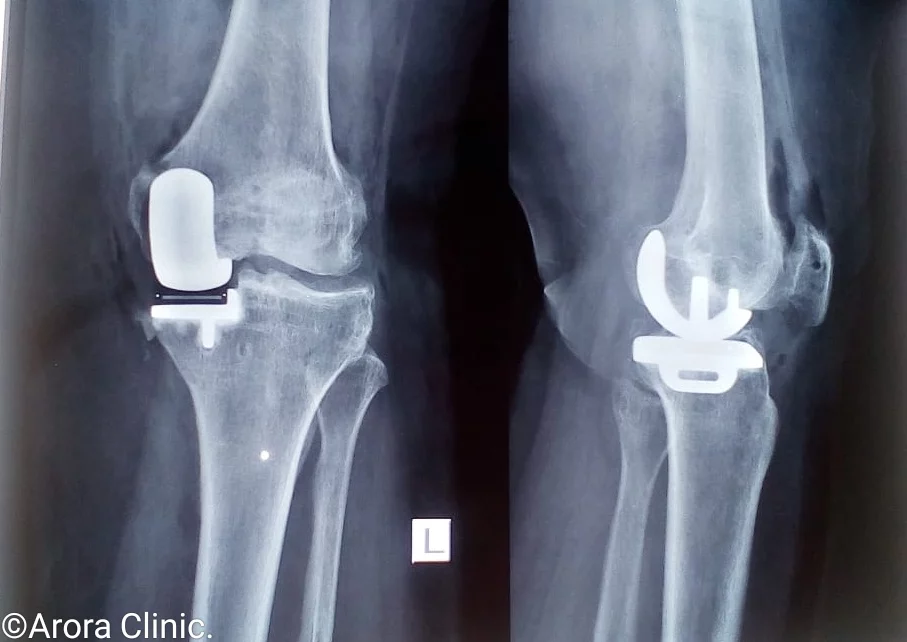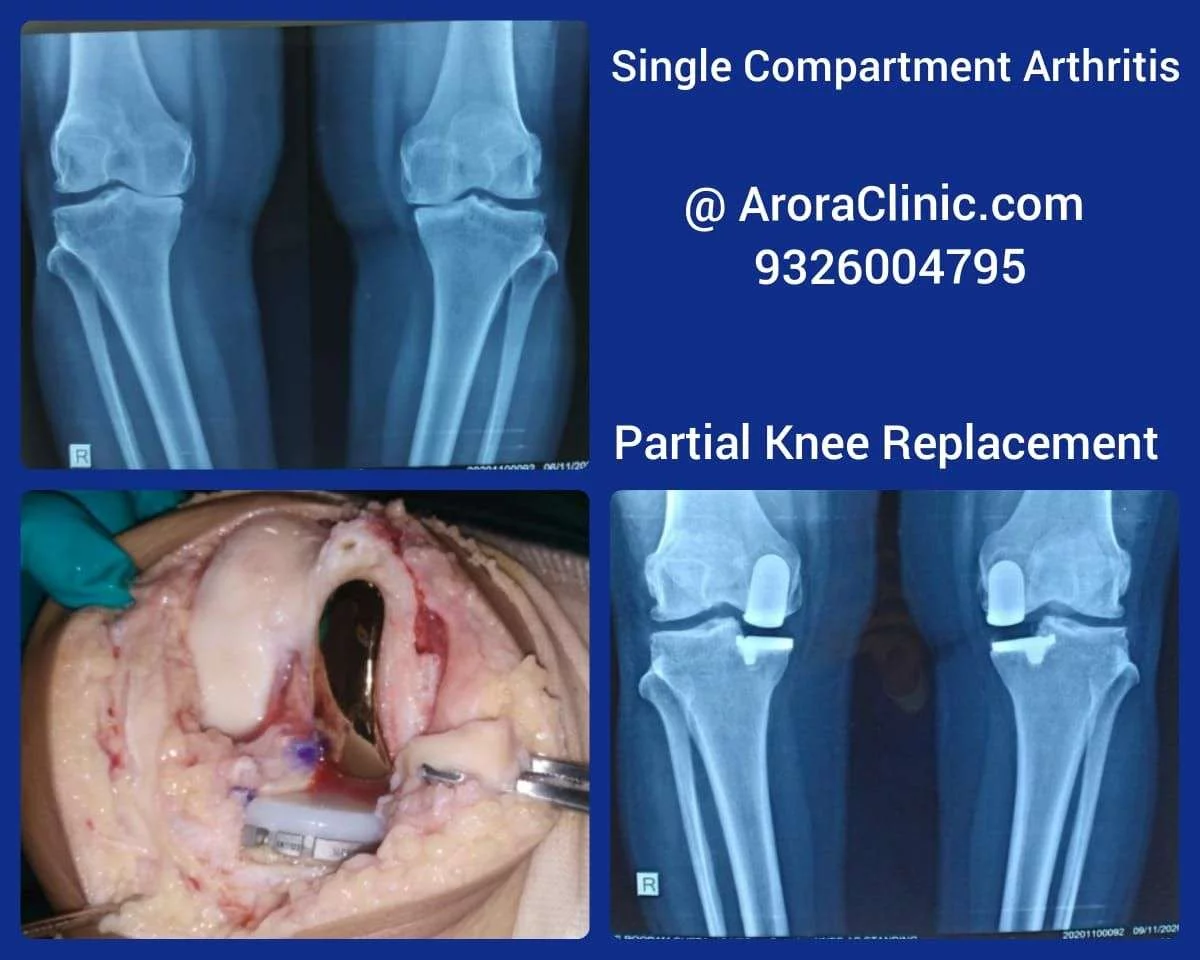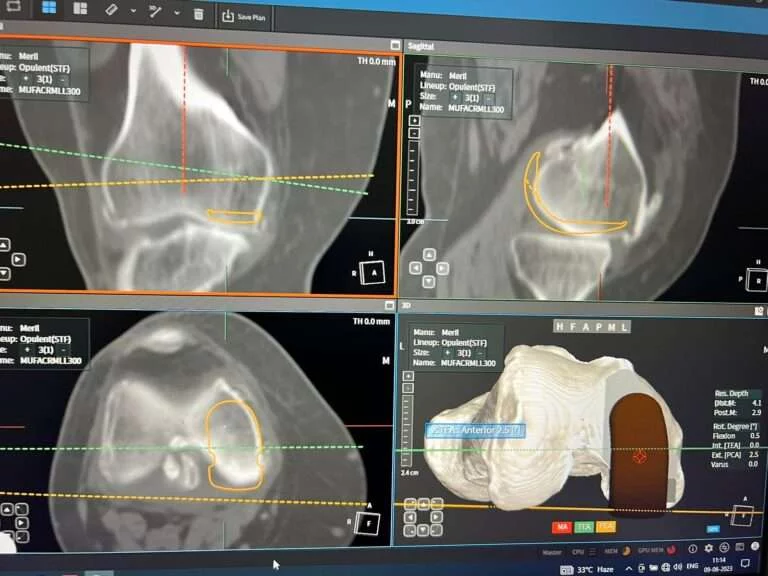

In recent years, advancements in technology have revolutionized the field of medicine, and orthopedics is no exception. Robotic-assisted surgeries have emerged as a game-changer, providing more precise and personalized treatment options for patients. One such ground breaking procedure is robotic partial knee replacement surgery. In this blog, we will delve into the details of this innovative surgical technique and explore its benefits, process, and potential impact on patients’ lives.
In recent years, advancements in technology have revolutionized the field of medicine, and orthopedics is no exception. Robotic-assisted surgeries have emerged as a game-changer, providing more precise and personalized treatment options for patients. One such ground breaking procedure is robotic partial knee replacement surgery. In this blog, we will delve into the details of this innovative surgical technique and explore its benefits, process, and potential impact on patients’ lives.

Robotic-assisted surgery combines the expertise of orthopedic surgeons with the precision and accuracy of robotic technology. It involves the use of a robotic arm, which is controlled by the surgeon, to perform the procedure. The robotic arm provides real-time feedback and assists the surgeon in planning and executing each step of the surgery with greater precision.

Personalized treatment: Robotic technology allows for a personalized surgical plan based on each patient’s unique anatomy and condition. This individualized approach results in a better fit and alignment of the prosthetic implant, leading to improved outcomes.
Minimally invasive: The minimally invasive nature of this procedure means smaller incisions, reduced tissue damage, and faster recovery time compared to traditional knee replacement surgeries. Patients experience less pain, minimal scarring, and shorter hospital stays.
Precise implant positioning: Robotic guidance enables surgeons to achieve optimal positioning of the prosthetic implant, ensuring better stability, range of motion, and longevity of the implant.
Faster rehabilitation: Due to the minimally invasive nature of the surgery, patients can start rehabilitation and physical therapy sooner, leading to a quicker return to daily activities and improved overall quality of life.
After the surgery, patients receive comprehensive postoperative care, including pain management, physical therapy, and follow-up visits. The recovery period varies from person to person, but with the help of robotic partial knee replacement, patients typically experience a faster and smoother recovery compared to traditional knee replacement surgeries.
There are various types of robotic knee replacement procedures available, each designed to address specific areas of the knee joint. The two main types are:
Robotic partial knee replacement surgery represents just the tip of the iceberg when it comes to the potential of robotic technology in orthopedics. As technology continues to advance, robotic systems are likely to play an increasingly significant role in various orthopedic procedures, providing better outcomes, shorter recovery times, and improved patient satisfaction.


Robotic partial knee replacement surgery is gaining significant momentum in India’s healthcare landscape. Several renowned hospitals and orthopedic centres across the country have adopted robotic systems to offer advanced treatment options to patients. India’s skilled orthopedic surgeons are leveraging this technology to provide precise and efficient partial knee replacements, enhancing patient outcomes and overall satisfaction.
Robotic partial knee replacement surgery is an innovative and transformative approach to treating knee osteoarthritis. With its precise and personalized nature, this procedure offers numerous benefits, including better alignment, minimal tissue damage, and faster recovery. As the field of robotics continues to evolve, we can expect even more breakthroughs in orthopedic surgery, enhancing the quality of life for countless patients worldwide.
If you are looking for Partial Knee Replacement Surgery in Thane , Mumbai or India, Feel Free to Contact the Best Partial Knee Replacement Surgery Specialist . Dr Bakul Arora is one of the Best Knee Replacement Surgeon in Thane and Mumbai and he is specialised in Robot assisted partial knee replacement and Robot Assisted Total Knee Replacement Surgery.
Robotic Knee Replacement Surgery in India ,” we are your trusted destination for cutting-edge knee care and advanced robotic surgical solutions. Our dedicated team of experts, located in the vibrant cities of Mumbai and Thane, is committed to providing you with a comprehensive range of services to alleviate knee pain and enhance your quality of life.
Our state-of-the-art offerings include Robot Assisted Knee Replacement Surgery in Thane , Robotic Partial Knee Replacement Surgery, Robotic Hip Replacement Surgery, Robotic Knee Arthroscopy Surgery, and Robotic ACL Reconstruction Surgery and all Types of Orthopedic surgery in thane and Mumbai . We take pride in our expertise in knee pain management and surgical interventions, ensuring that you receive the highest standard of care.
Our Robotic Knee Replacement surgeon in Mumbai boasts a wealth of experience and unwavering dedication to knee surgeries. With a track record of over 3000 successful procedures, their expertise and commitment ensure you’re in capable hands when you entrust your knee health to us. Your well-being is our priority.
Choose “Robotic Knee Replacement Surgery” for a pain-free, active life, and let us redefine your knee health with precision and innovation.
Please Contact use today if you are looking for Cost of Robotic Knee Replacement surgery in Thane or Mumbai.
Partial knee replacement surgery is suitable for patients who have arthritis primarily limited to one compartment of the knee joint. It is essential to undergo a thorough evaluation by an orthopedic specialist in Thane to determine if partial knee replacement is the right option for you based on your individual condition and medical history.
In partial knee replacement surgery, only the damaged part of the knee joint is replaced, preserving the healthy portions. Total knee replacement, on the other hand, involves replacing the entire knee joint. Partial knee replacement is a less invasive procedure with a shorter recovery period and potentially fewer complications. It is generally recommended for patients with isolated arthritis in one compartment of the knee.
Some of the benefits of partial knee replacement surgery include:
The recovery time can vary from patient to patient, but generally, partial knee replacement surgery has a shorter recovery period compared to total knee replacement. Most patients are able to walk with the assistance of a walker or crutches within a few days after surgery. Physical therapy and rehabilitation play a crucial role in restoring strength, flexibility, and mobility, with most patients returning to normal activities within several weeks to a few months.
While partial knee replacement surgery is generally safe, like any surgical procedure, there are potential risks and complications. These may include infection, blood clots, implant loosening, nerve or blood vessel damage, persistent pain, stiffness, or the need for additional surgery. It is important to discuss these risks with your surgeon and follow all post-operative instructions to minimize potential complications.
Partial knee replacement surgery aims to relieve pain and restore function, allowing patients to resume their normal activities with improved joint function. However, it is essential to follow your surgeon’s guidance and gradually increase activities as part of the rehabilitation process. Your surgeon will provide specific instructions on when it is safe to return to various activities, including sports and high-impact exercises.
Partial knee replacement surgery is a long-term solution for managing arthritis in the affected compartment of the knee. The longevity of the implant depends on various factors, including your age, activity level, and adherence to post-operative care. While the implant may eventually wear out over time, partial knee replacements have shown excellent long-term outcomes, providing relief from pain and improving joint function for many years.
It is normal to experience some discomfort and pain in the initial stages of recovery. However, the intensity of pain gradually decreases over time with appropriate pain management techniques prescribed by your surgeon. Pain medications, physical therapy, and following the recommended rehabilitation program will help manage any post-operative discomfort.
Previous knee surgery does not necessarily disqualify you from having a partial knee replacement. However, each case is unique, and your surgeon will evaluate your specific circumstances to determine the most appropriate treatment plan. Factors such as the type of previous surgery, the extent of damage, and the overall condition of your knee joint will be considered in making the final decision.
Arora Clinic, Shop No. 16, Block 2, Emerald Plaza, Hiranandani Meadows, Glady Alvares Road, Behind Standard Chartered Bank, Thane west - 400610
Phone: +91 93260 04795
Copyright © 2025 Arora Clinic. Website is Designed and Handle by Hopeland Healthcare.
WhatsApp us
